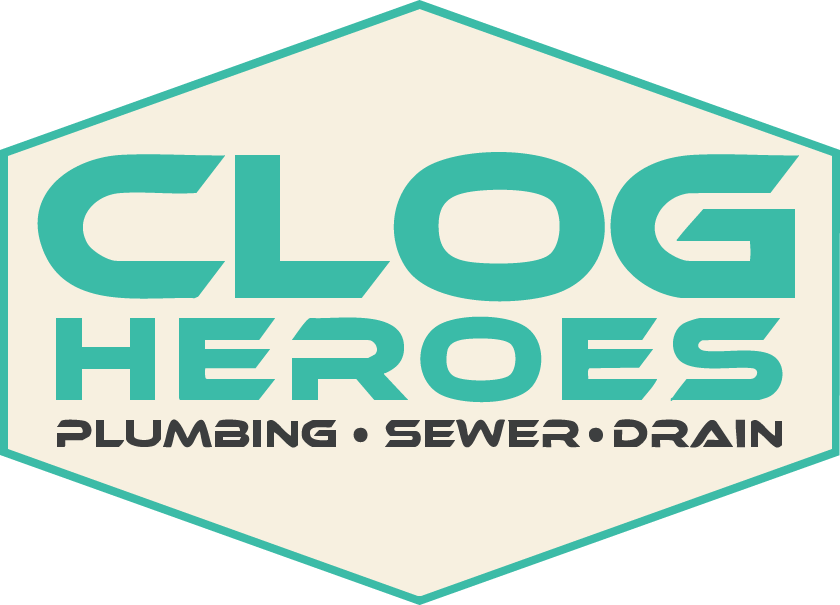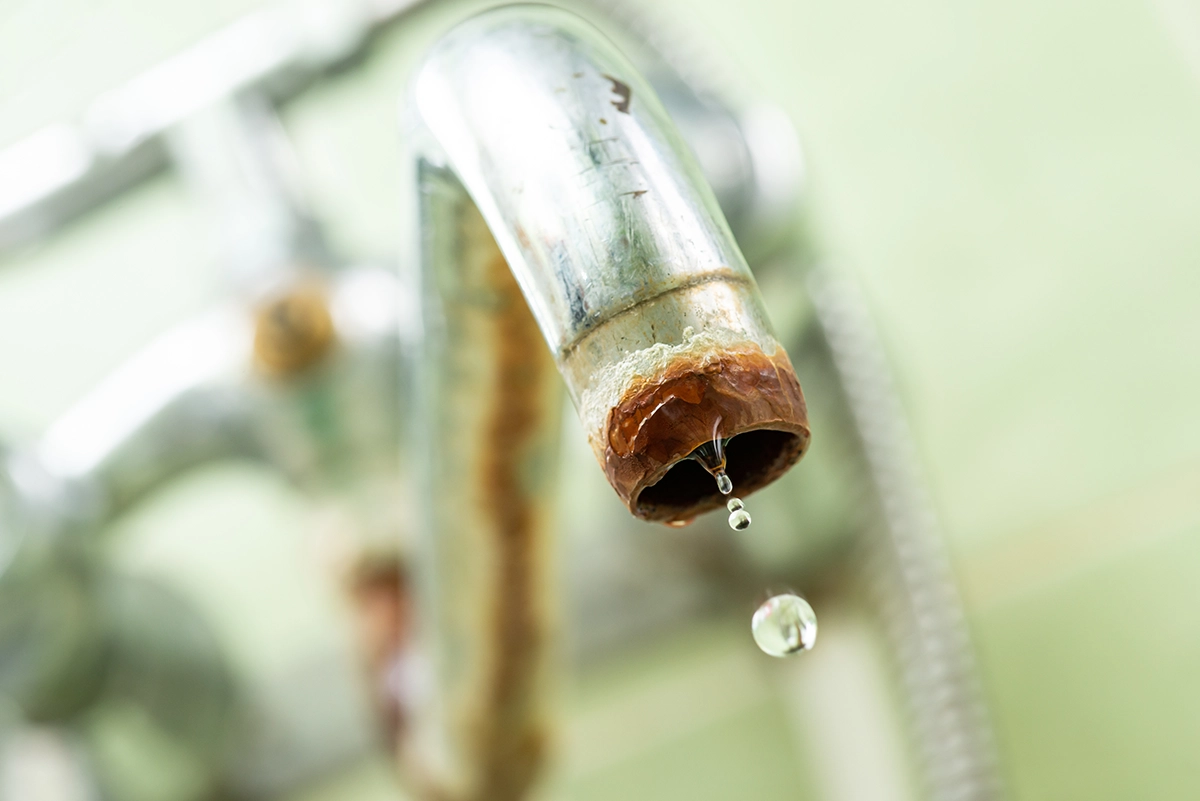What Causes Bathroom Faucets to Corrode Over Time?
Home /
Your bathroom faucets are built to handle daily use, but over time you may notice rust spots, discoloration, or even pitting on the surface. Many homeowners ask the same question: what causes bathroom faucets to corrode? The truth is that several different factors contribute to corrosion, from the water flowing through your pipes to the air in your home. Understanding these causes can help you protect your fixtures, extend their lifespan, and avoid costly replacements.
At Clog Heroes in Fredericksburg, VA, we’ve helped countless homeowners deal with plumbing issues caused by corroded faucets. Here’s what you need to know about why it happens and what you can do to prevent it.
Understanding What Causes Bathroom Faucets to Corrode
Corrosion is a chemical reaction that breaks down metal over time. In bathroom faucets, it usually shows up as rust, white mineral buildup, or dark spots on the surface. Sometimes it’s only cosmetic, but in other cases, corrosion can weaken the faucet, cause leaks, or contaminate your water with flakes of metal.
Because faucets are constantly exposed to water and oxygen—two of the biggest contributors to corrosion—it’s almost inevitable that some level of wear will happen. But the rate and severity depend on several factors.
Hard Water and Mineral Buildup
One of the leading answers to the question what causes bathroom faucets to corrode is hard water. In Fredericksburg and many surrounding areas, water contains high levels of minerals like calcium and magnesium. When hard water flows over your faucet every day, these minerals cling to the surface, leaving behind chalky white deposits.
Over time, this buildup traps moisture against the metal. That trapped moisture accelerates corrosion, leading to rust and deterioration. Hard water can also clog aerators, making your faucet look worse and perform poorly.
Chemical Reactions Causes Bathroom Faucets to Corrode
Another reason bathroom faucets corrode is due to chemical reactions inside your plumbing system. Many faucets are made of brass or contain copper components. If your plumbing system combines copper pipes with galvanized steel or other dissimilar metals, an electrochemical reaction known as galvanic corrosion can occur.
This process causes one metal to corrode faster when it comes into contact with another. Over time, you may notice pitting, discoloration, or leaks forming around faucet connections.
Moisture and Poor Ventilation
Bathrooms are naturally humid spaces, and that humidity plays a major role in corrosion. Even when you’re not running the faucet, water vapor from showers and baths condenses on metal surfaces. Without good ventilation, that moisture lingers, creating the perfect environment for rust and corrosion to thrive.
Homeowners often see this first around the base of the faucet where water puddles and air circulation is weakest.
Cleaning Products Causes Bathroom Faucets to Corrode
Believe it or not, the way you clean your bathroom could also be contributing to faucet corrosion. Many common bathroom cleaners contain harsh chemicals like bleach or ammonia. These chemicals can eat away at protective coatings on metal faucets, leaving the underlying metal vulnerable to corrosion.
Even something as simple as forgetting to rinse off cleaning residue can accelerate the damage. Using gentle, non-abrasive cleaners is key to keeping faucets looking good for longer.
Age and Wear of Materials
Like anything else in your home, faucets have a lifespan. Older faucets may not be made with the same corrosion-resistant materials used in modern fixtures. If your faucets are more than 10–15 years old, natural wear and tear may be the main reason corrosion is showing up.
Even durable finishes like chrome or brushed nickel eventually wear thin, exposing the underlying brass or steel to water and air. Once the protective coating is gone, corrosion usually speeds up.
How to Prevent Faucet Corrosion
While you can’t stop time, there are several steps you can take to slow down corrosion and protect your bathroom faucets:
Install a water softener to reduce mineral buildup from hard water.
Wipe faucets dry after use to prevent water spots and moisture accumulation.
Improve ventilation in your bathroom with a fan to cut down on humidity.
Use gentle cleaners designed for bathroom fixtures instead of harsh chemicals.
Inspect faucets regularly for early signs of wear so you can address issues quickly.
With consistent care, many faucets can last years longer without major corrosion problems.
When to Replace a Corroded Faucet
Sometimes, no amount of cleaning or maintenance will reverse the damage. If corrosion is severe enough that the faucet leaks, produces discolored water, or has visible pitting, replacement is the best solution.
Fortunately, replacing a bathroom faucet is a straightforward job for a professional plumber. New faucets often come with better finishes, stronger corrosion resistance, and improved water efficiency.
Professional Help in Fredericksburg, VA
If you’re dealing with corroded bathroom faucets, the experts at Clog Heroes in Fredericksburg, VA can help. We offer faucet repairs, replacements, and full plumbing inspections to make sure corrosion isn’t a sign of a bigger issue in your pipes.
Our team will help you choose the right fixtures, install them properly, and even recommend water treatment solutions if hard water is to blame. Instead of letting corrosion damage your bathroom, you can count on us to keep your plumbing system working and looking its best.
Final Thoughts
So, what causes bathroom faucets to corrode over time? The main culprits are hard water, humidity, cleaning chemicals, and natural wear of materials. By understanding these factors, you can take preventive steps to extend the life of your faucets. And if corrosion has already set in, don’t wait until leaks and costly water damage occur—reach out to Clog Heroes in Fredericksburg, VA for expert plumbing help.

